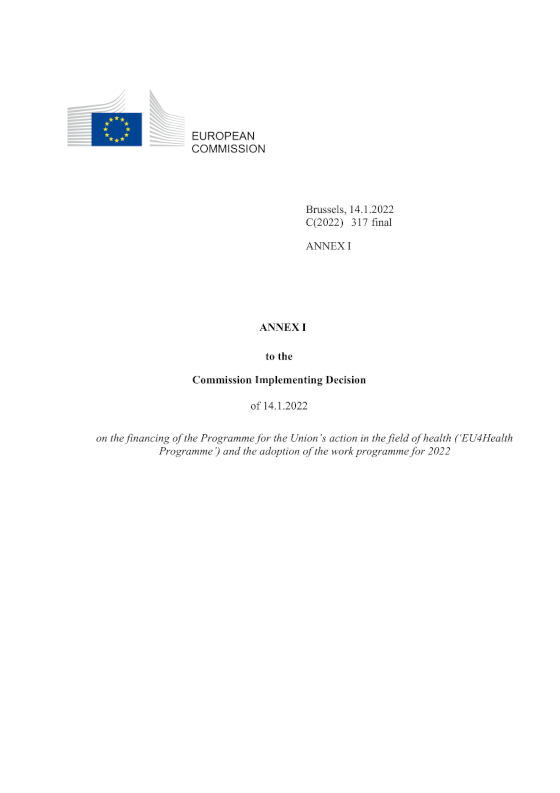 On 24 March 2021, Regulation (EU) 2021/522 of the European Parliament and of the Council1 was adopted as part of the Multiannual Financial Framework for the 2021-2027 period. That Regulation established a Programme for the Union's action in the field of health
('the EU4Health Programme').
On 24 March 2021, Regulation (EU) 2021/522 of the European Parliament and of the Council1 was adopted as part of the Multiannual Financial Framework for the 2021-2027 period. That Regulation established a Programme for the Union's action in the field of health
('the EU4Health Programme').
The COVID-19 pandemic has caused an unprecedented health crisis in the Union and beyond, with severe socio-economic consequences and human suffering. The EU4Health Programme represents an unparalleled Union level financial commitment for health actions in comparison with previous health programmes. The EU4Health Programme is the Union's response to the current public health emergency that will make a significant contribution to the post-COVID-19 recovery aiming to:
(a) improve public health in the Union through disease prevention and health promotion, as well as international health initiatives and cooperation;
(b) protect people from serious cross-border health threats through prevention, preparedness and response to cross-border health threats, complementing national stockpiling of essential crisis-relevant products and establishing a reserve of medical, healthcare and support staff;
(c) improve access to medicinal products, medical devices and crisis-relevant products by encouraging sustainable production and supply chains and innovation in the Union as well as efficient use of medicinal products;
(d) strengthen the national health systems through improved health data use and re-use, development of digital tools and services, digital transformation of healthcare, enhancing access to healthcare, developing and implementing Union health legislation and evidence-based decision-making and integrated work among Member States' health systems.
The EU4Health Programme, the main financial instrument to fund the Union health initiatives, is implemented through annual work programmes and on 24 June 2021 the Commission adopted the first one, for 2021.
The EU4Health work programme 2022 will continue paving the way to the European Health Union under four overarching 'strands': (1) crisis preparedness; (2) disease prevention; (3) health systems and healthcare workforce; and (4) digital.
Download: EU4Health Programme (1.338 KB).
Download from DIGITAL HEALTH NEWS: EU4Health Programme (1.338 KB).